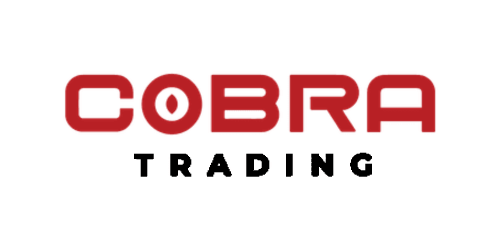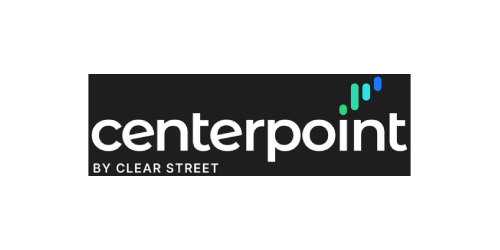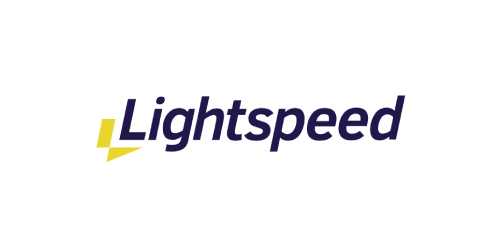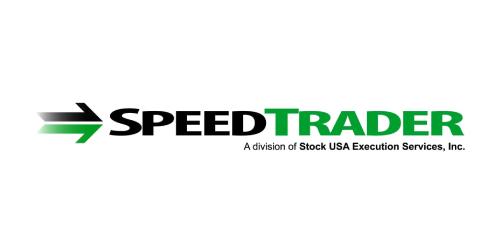What are the best brokers for day trading? If you plan to actively trade the financial markets with hundreds of buy and sell orders per month, you need the best day trading broker.
Fast order executions make a massive difference for your daily profit. The faster the orders are executed by using the best trading platform, the better the profitability potential.
This list contains the best online brokers for for active traders. Let’s discover the best day trading platforms, lowest commission rates and the best customer support.
| 📊 Broker Type | Online day trading brokers |
| ✅ Best For | Day trading |
| 🚀 Features | Order routing, short locates, high-speed trade execution |
| 💻 Technology | Direct-access platforms |
Best Brokers for Day Trading
1. Cobra Trading
Cobra Trading was founded in 2003 by Chadd Hessing. The direct-access broker is fast, has the best commission rates and defined customer service as their priority. Traders can open and close trades via phone at no additional cost.

Cobra Trading is located in Texas and member of FINRA, NFA and SIPC. Traders can choose between three powerful day trading platforms; CobraTraderPro, DAS Trader, and Sterling Trader Pro.
Typically, the commissions per share start at $0.003, with a trading volume between 0 to 100k shares per month.
Special Offer: Here you get a 33% commission discount with Cobra Trading (for life) (Bonus: 1 month of free access to DAS Trader and Sterling included).
I wrote a comprehensive Cobra Trading review where I guide you through Cobra Trading’s platforms, commissions, and other benefits like short locate lists, low margin rates etc.
2. Interactive Brokers
Interactive Brokers has the best API for automated trading. Clients can build custom trading apps, integrate trading to existing front-end applications, develop commercial trading software solutions and access stocks, options, futures, currencies, bonds, funds and more in 33 countries across 150 markets.

Interactive Brokers offers several different trading platforms for traders and investors. Their flagship trading platform is the Trader Workstation. It is an excellent platform for active investors and traders looking for a flexible user interface with extensive customizable features.
In addition, their IBKR GlobalTrader application for iOS and Android is perfect for novice investors looking to expand their portfolios overseas. Finally, they recently released the new web-based IBKR EventTrader platform, which lets investors and traders trade their opinion on “yes or no” questions using CME Event Contracts.
A significant benefit that they offer is their extensive range of order routing capabilities, with over 100 order types and algos, from basket orders, all or none, dark ice, bracket orders, hidden, if touched, market, limit, and sweep to fill orders to scaling capabilities and more.
Another advantage of Interactive Brokers is the fully-integrated paper trading account. New traders should use this tool for a couple of weeks to get used to the platform by placing orders with simulated cash.
Interactive Brokers offers two pricing plans for clients: IBKR Lite and IBKR Pro. IBKR Lite caters to retail investors looking for commission-free trades on US stocks and ETFs, while IBKR Pro caters to active traders looking to achieve the best price execution with each trade at a low cost.
IBKR Pro clients can choose between fixed and tiered commission structures, where the commission on US stocks is between USD $0.0005 and $0.0035 per share for tiered pricing:
- ≤ 300,000 shares = $0.0035 per share
- 300,001 – 3,000,000 shares = $0.0020 per share
- 3,000,001 – 20,000,000 shares = $0.0015 per share
- 20,000,001 – 100,000,000 shares = $0.0010 per share
- > 100,000,000 shares = $0.0005 per share
Alternatively, users pay $0.005 per share for fixed pricing (including exchange fees).
Click here for more details and to get started with Interactive Brokers.
3. Centerpoint Securities
Centerpoint Securities is a low-cost day trading broker. They have one of the best short-sale locate lists, which enables day traders to short nearly every stock.

Commission rates at the entry-level with trading volumes lower than 500.000 shares per month is $0.0030 plus routing fees. Therefore, Centerpoint Securities is right in the middle between Interactive Brokers and Lightspeed Trading.
DAS Trader Pro and Sterling Trader Pro are the platforms offered. DAS Trader pro costs $120 per month while the base terminal fee will be waived if >200k shares are traded in any given month.
Centerpoint Securities requires you to fund your account with at least $30,000. Read the Centerpoint Securities review for all facts.
4. Lightspeed Trading
Lightspeed Trading is what the name stands for – lightning-fast. The trading platform is one of the fastest ones with tons of customization options.

You need at least $25,000 to open an account with them, which is fine since you want to day trade, and the SEC requires to have $25,000 in your account to day trade. That also means that Lightspeed is not for long-term investors or people who want to try the world of trading in general.
As with any day trading platform, at first, things seem to be complex. Take your time to go through all educational videos first, and make small steps. Setting the right hot-keys, order routings, and pre-configured position sizes are crucial for success.
The commission entry-level at Lightspeed Trading is at $0.0045 per share plus exchange fees if you stay under 249.999 shares per month. In most cases, that means that the costs are a bit higher than with Interactive Brokers. But on the other hand, Lightspeed is fast and has an excellent platform.
The trading platforms’ fees are a bit hidden on the website, but you can find them at the bottom of the platform comparison.
The inhouse LS Trader costs $130 per month, while Sterling Trader costs about $250 per month. The LS Trader costs will be waived if you generated at least $130 in commissions in the previous month. There is no way to get the Sterling Trader costs waived. Try a demo if you are uncertain and read the full Lightspeed Trading review.
5. SpeedTrader
SpeedTrader is a direct access stock broker for day traders. Similar to Interactive Brokers, Lightspeed Trading, and Centerpoint Securities, SpeedTrader does not sell orderflow.

They give you direct market access and charge a little commission in return. SpeedTrader exists for over 20 years now, and they are one of the most popular day trading brokerage firms out there. The price per share on the entry level with up to 250k traded shares per month is $0.0029 plus routing fees.
SpeedTrader Pro is the inhouse day trading platform solution which is based on DAS Trader technology. Within the platform, 25 routing options are available along with stock scanners, watch lists, and 100 hot-key options.
The platform costs $99 per month, where Level 2 data is already included. Clients who generate commissions of $199 per month can use SpeedTrader Pro for free in the next month. Proceed by reading the SpeedTrader review.
Comparison
| Day Trading Broker | Costs per Share | Trading Platform Costs |
|---|---|---|
| Cobra Trading | $0.0020 | $0-$230/month |
| Interactive Brokers | $0.0035 | $0-$20/month |
| Centerpoint Securities | $0.0030 | $0-$250/month |
| Lightspeed Trading | $0.0045 | $0-$250/month |
| SpeedTrader | $0.0029 | $0-$99/month |
Cobra Trading vs Interactive Brokers
In comparing Cobra Trading vs. Interactive Brokers, Cobra Trading is the winner in cost per share, support and trading platform offering. On the other hand, interactive Brokers has strengths in multi-asset offerings.
- Both brokers are direct access brokers and require commissions for day trading stocks. The entry-level at Cobra Trading is $0.002 per share, while Interactive Brokers requires nearly double with $0.0035 per share.
- In terms of Support, Cobra Trading is the clear winner since they pick up the phone in seconds during market hours and have a specialized support team with day trading knowledge. On the other hand, it can take 30 minutes and more to reach someone at the Interactive Brokers support team.
- Cobra Trading offers the platforms DAS Trader Pro, Sterling Trader and Cobra Trader, while Interactive Brokers offers its in-house platform TraderWorkstation.
- Interactive Brokers can trade multi-assets such as stocks, options, futures, forex, etc., from one account, while Cobra Trading specializes in day trading U.S. stocks offerings.
Cobra Trading vs Centerpoint
In the comparison of Cobra Trading vs. Centerpoint Securities, Cobra Trading is the winner in cost per share and trading platform offering. Both brokers are equal in terms of support and knowledge bases.
- Both brokers are direct access brokers and require commissions for day trading stocks. The entry level at Cobra Trading is $0.002 per share, while Centerpoint Securities requires $0.003 per share.
- In terms of Support, Cobra Trading and Centerpoint Securities are equal and support their traders with a live trading desk during market hours.
- Cobra Trading offers the platforms DAS Trader Pro, Sterling Trader and Cobra Trader, while Centerpoint Securities offers its CenterPoint Pro and CenterPoint Web platforms.
Centerpoint Securities vs Lightspeed
Both are equal in comparing Centerpoint Securities vs. Lightspeed. Still, Centerpoint Securities is slightly better for short sellers because of their short locate tool.
- Both brokers are direct access brokers and require commissions for day trading stocks. The entry-level at Centerpoint Securities and Lighspeed is $0.003 per share, while Lightspeed also offers per trade rates.
- In terms of Support, Lightspeed and Centerpoint Securities are equal and support their traders with a live trading desk during market hours.
- Lightspeed offers its Lightspeed Trader and Sterling Trader Pro, while Centerpoint Securities offers its CenterPoint Pro and CenterPoint Web platforms.
Bottom Line
The best broker for day trading is Cobra Trading, followed by Interactive Brokers and Centerpoint Securities. Cobra Trading leads in all categories (costs, trading platforms, support) and is always slightly better than the competition.
All day trading brokers in this list are direct-access brokers with specialized day trading platforms, order routing capabilities and level 2 market data.
A potential disadvantage immediately comes up when looking at the commission structure. Brokers like TD Ameritrade and Charles Schwab charge $0, but those direct market access brokers require commission payments. Why is that?
Those retail brokers still make money even if they do not charge commissions to clients. That’s because they sell the order flow to 3rd parties. That means that once you click on a buy or sell button, your order will not be routed to the stock exchange or market maker.
Instead, it gets routed to the 3rd party order routing systems first. In exchange for providing liquidity to the 3rd parties, the broker receives compensation via payment for order flow.
While zero commissions sound benefiting at first, it is not for day traders because the order execution is not that fast anymore. If you go through the list below, then most of the brokerages mentioned have commissions. They are reasonably low, but they exist. In exchange for the commission, your orders get routed to the stock exchange directly without delay.
Guide
Finding the best online brokers for day trading is easier said than done. There are many dependencies to think about before making a decision.
Trading strategies, type of stocks to trade, the pattern day trading rule, trading costs, paper trading platforms, the minimum deposit and supported financial instruments are just a few examples.
Day trading involves risk, and you need trading experience to become successful by using analysis tools, an advanced trading platform, technical indicators for technical analysis, a pattern day trading account and good day trading strategies to become profitable.
Here are the things to consider on how to chose a day trading platform and a broker.
Evaluate if You Have $25,000 Available to Fund a Day Trading Account
Day trading means that you buy and sell security like stocks on the same day. If you do it only 3 times in a 5 business day range, you can even day trade with small accounts. But real day trading means trading thousands of shares with hundreds of orders per week.
As defined by the Securities and Exchange Commission, you need to have a margin account and maintain an account size of $25,000. Otherwise, your account will get locked for day trading activities. How much money do you have?
Outside the United States, things are different in some countries. Still, if you open an account with a broker in the United States, then you have this hurdle in front of you and handle it by providing and maintaining sufficient funds.
Define How Often You Want to Trade and What Share Sizes
Stock trading, options trading and futures trading can be done with any broker. But it makes a massive difference about the best day trading platform for you if you either plan to trade frequently or not.
The more you trade, the more likely you will use the best direct access broker to route your orders based on the trading strategy used for your favorite stock exchange. Active traders, experienced traders, and professional traders most often go this route.
That’s because even using a stock trading platform in the retail brokerage segment will not serve your expectations about order execution speed.
On the other hand, if you trade not that often and prefer to have online trading platforms with some trading tools to analyze the stock markets or buy mutual funds and exchange traded funds, a brokerage account with a retail broker does the job well.
Do you want to short stocks? The best brokers for short selling are direct access brokers since they have the largest list of easy-to-borrow shares and a better chance of locating hard-to-borrow shares for a reasonable price.
Decide Whether to Use Retail Online Brokers or Direct Access Brokers
Retail brokers like TD Ameritrade and Robinhood offer zero commissions. But they will sell the order flow resulting from client orders to third parties. Direct access brokers directly route your order to your preferred stock exchange or ECN. Investors most often decide for the retail broker while day traders focus on high-speed executions using direct market access.
FAQs
How Do I Choose a Day Trading Broker?
You choose a broker based on tradeable assets (stocks, options, futures), commissions (per trade), fees (platform fees, inactivity fees), support (24/7, 10/5) and trading platforms.
Do You Need 25K to Day Trade?
Within the United States, the minimum account balance for day trading on margin is $25,000 to day trade stocks and options, while there is no minimum for day trading futures contracts or currencies. In July 2025, Wall Street’s top regulator announced that they were preparing to remove the 25K rule. We’ll see how this will be implemented once the update rule is in place.
